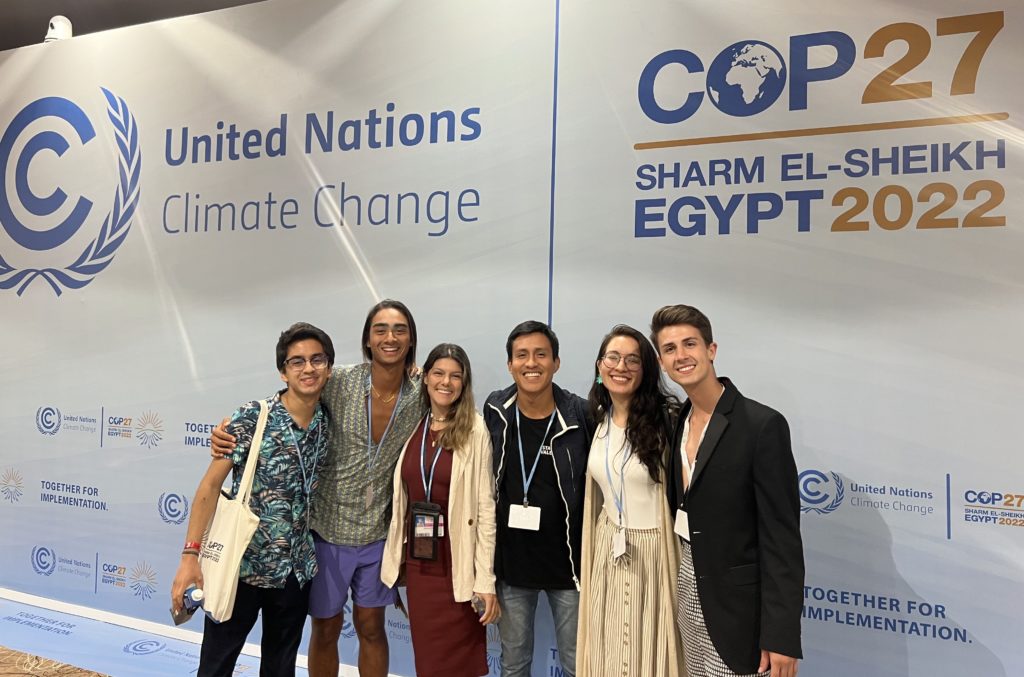Bodhi Patil is a young ocean climate solutionist passionate about the interconnection between Ocean Health and Human Health (OHHH). As the founder of Inner Light, co-creator of @oceanuprise, co-founder of Sea Dragon Studios – One World Breath, co-winner of the UN Oceans Conference Youth & Innovation Forum, and United Nations esteemed young leader, Bodhi supports young people to create impact at scale. He is a Youth Advisor for OnDeck Fisheries AI, World Ocean Day, and Break Free from Plastic Pollution. He is actively working on a Meaningful Youth Ocean-Climate Action strategy with various UN constituencies, UN Global Compact and youth partners. He is a second-year student in the BA + Masters of Management program at the University of British Columbia studying oceans, climate action, and business.
This is part two of Bodhi’s interview, where he reveals his reflections on COP27 and why intergenerational collaboration needs to be at the root of all forthcoming action for the Ocean.
1. Hi Bodhi, you recently attended COP27 in Sharm El Sheikh, Egypt – how did this opportunity arise and what was your role there?
I approached COY 17 and COP 27 with an attitude of positive realism. A balance between bringing uplifting energy and being an inquisitive and well-informed critic. This approach unlocked many doors, insights, and opportunities. Namely, wider support for ocean organizations to finance, build programming, and capacity for young ocean guardians to learn, grow and scale up local community-led action initiatives to global forums. With sponsorship from the Captain Planet Foundation, I was able to attend COP 27 and make waves by disrupting inefficient processes and adding a strong youth voice to slow-moving dialogues and static sessions.
As planetary warriors we oftentimes find ourselves burning out as a result of the non-stop and insurmountable problem of climate change. I was able to stay fresh and sharp, with a mind absorbing information like a sponge (for the most part haha) by diving and replenishing my soul in the Red Sea. Going into the crystal blue water was the most magical reset, an automatic way to fill up my tank of love and feel ready to kick-butt amongst negotiators, industry leaders, and innovators!
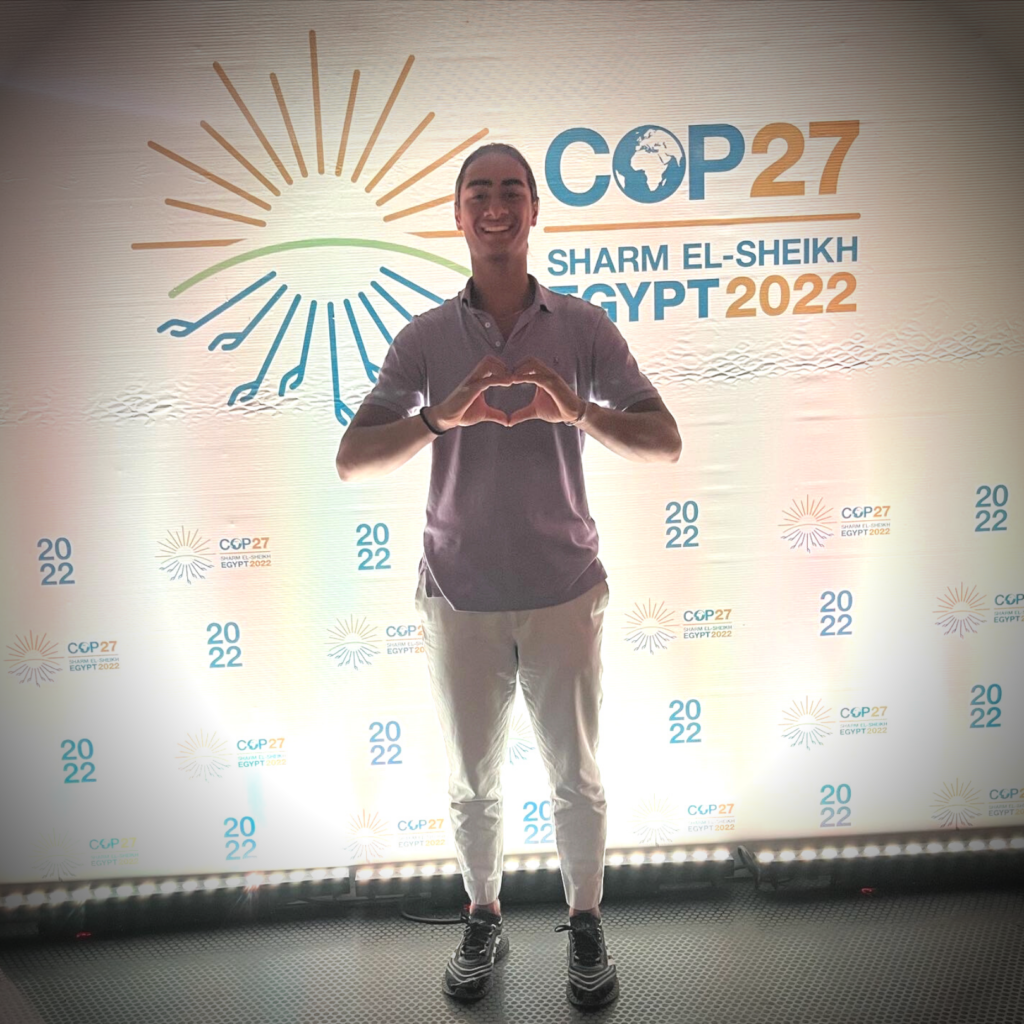
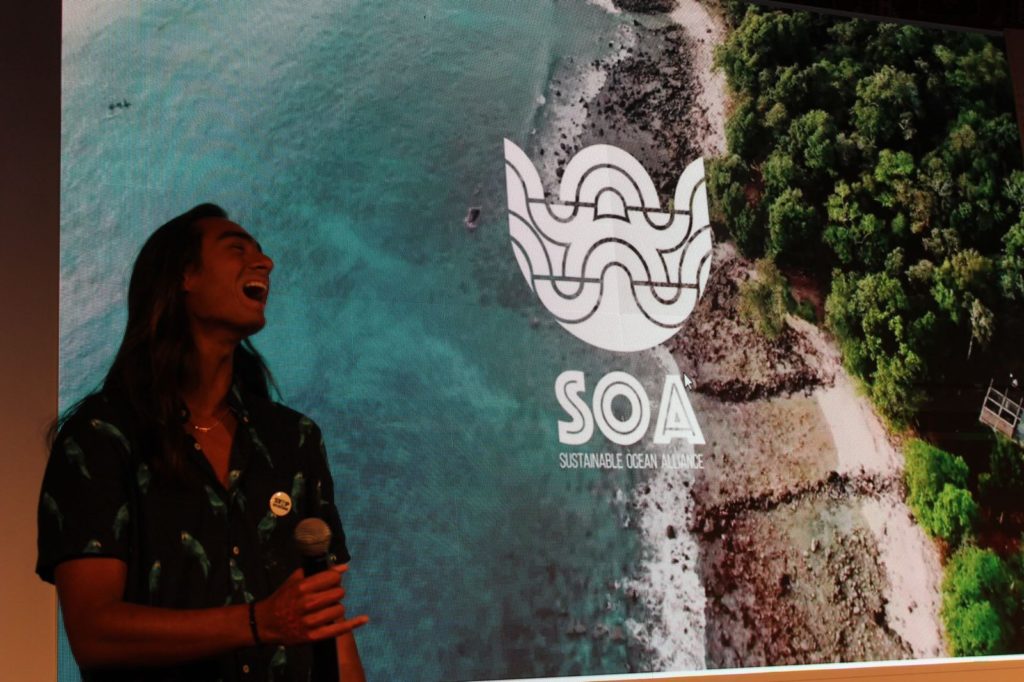
2. What are some of your reflections from COP27?
COP 27 threw me into the deep end. Fortunately, I love the deep end. It’s one of my favourite places to be, with no bottom in sight, just deep blue beneath me. A canvas of limitless potential and discovery. An opportunity for learning and growth. A chance to disrupt the entire system and re-create systems where people and the planet live in symbiosis.
This COP my fellow young ocean-climate leaders and I were shining bright. Our projects were featured within UN panels, high-level side events and through powerful art exhibitions. We had fun, bringing incredible childlike joy to a space of such serious energy. Through our songs, dance, and inquisitiveness, we created more positive outcomes. Many climate executives, ocean solution experts, and UNFCCC leaders expressed their continued support for youth funding, mentorship, and internships for holistic climate education/empowerment (integrating all parts of the living earth system, especially the ocean).
Within the complexity of highly technical negotiation on NDCs and loss and damage, to the grassroots movements demanding the criminalization of ecocide, human rights violations and climate injustice, COP was a hotbed of competition, collaboration, and new knowledge. A huge win was established as a loss and damage fund agreed upon by the parties to support countries most affected by the environmental inequity of climate impacts and particularly vulnerable countries in the global South will be implemented. However, questions remain to be answered regarding addressing the operation, implementation and execution of this fund. Furthermore, Increased global support for a climate resilience/adaptation fund for SIDS “large ocean states’, coral conservation, coastal stewardship and Indigenous rights was led by a groundswell of activists on-the-ground at COP 27.
It is easy to say that COP 27 was a complete failure. In my experience, there were many wins as the ocean-climate dialogue will be strengthened within countries’ NDCs, young people will have a larger platform in joint-decision making with the launch of the Children and Youth Pavilion, the Ocean Pavilion reached a massive audience, and increased finance was offered towards ocean solutions from philanthropists, government, investors, and industry accelerators. The biggest win of all was forming an Intergenerational task force of Ocean-Climate warriors who will continue to relentlessly fight for Ocean Health and Human Health in their lives, careers, and communities. The power of grassroots movements, Indigenous groups, youth constituencies, and ocean-environmental justice activists shone brightly at COP. As an ECOP, being able to add value, contribute youthful joy and urgency, and share tools to empower young people was essential to sowing the seeds for a more just and ocean-climate-literate world. It is a great honour to be a part of this global ocean community and help accelerate Intergenerational Collaboration and meaningful youth participation.
3. How are you incorporating into Ocean Optimism into your work; can you give us some examples of what you’re proud to have achieved in 2022, and who are you grateful to be working with?
To me, ocean optimism is about approaching all aspects of life with a positive, creative, and collaborative attitude. It is imperative to incorporate ocean optimism into conservation and ocean finance work to learn from the best practices of bright spots. Here are my: TOP 8 biggest bright spots of 2022 for youth-led ocean-climate action:
- Youth ocean solutions like One World Breath, Ocean Uprise, Sustainable Ocean Alliance, Earth Echo, Youthtopia, UN1FY, MyEffect and others are scaling up and making an impact at international fora.
- Establishment of the UN Youth Office
- Oceanic Global Ocean x Climate Summit
- Youth ocean-climate health solutions and declarations that came out in full force at COP 27 led by Islands 2030 Network, GLISPA, and AOSIS for Large Ocean States
- The Global Fund for Coral Reefs (GFCR) and XPrize Coral Reef Restoration Challenge
- Indigenous-led biodiversity and storytelling platforms being elevated like Nia Tero, PISFCC, Health in Harmony, Tetiaroa Society, and Polynesian Voyagers Society
- STOP ECOCIDE International and the Fossil Fuel Non-Proliferation Treaty pushing for more systemic change to divest and criminalize fossil fuel extraction
- MORE meaningful spaces for young people in Intergenerational Collaboration and Joint-Decision Making!!!
I am incredibly honoured and grateful to be able to work with Professor Lora Fleming from the University of Exeter on an Oceans and Human Health Case Study in a second-edition textbook. Professor Lora Fleming is a founder of the European Centre for Environment and Human Health and Chair of oceans, epidemiology and human health at the University of Exeter Medical School. She is a board-certified occupational and environmental health physician and epidemiologist with over 30 years of experience and expertise in environmental and occupational exposures and human health research and training.
Without asking for and receiving her support, mentorship, and advice these opportunities would not have been made fully available to me.
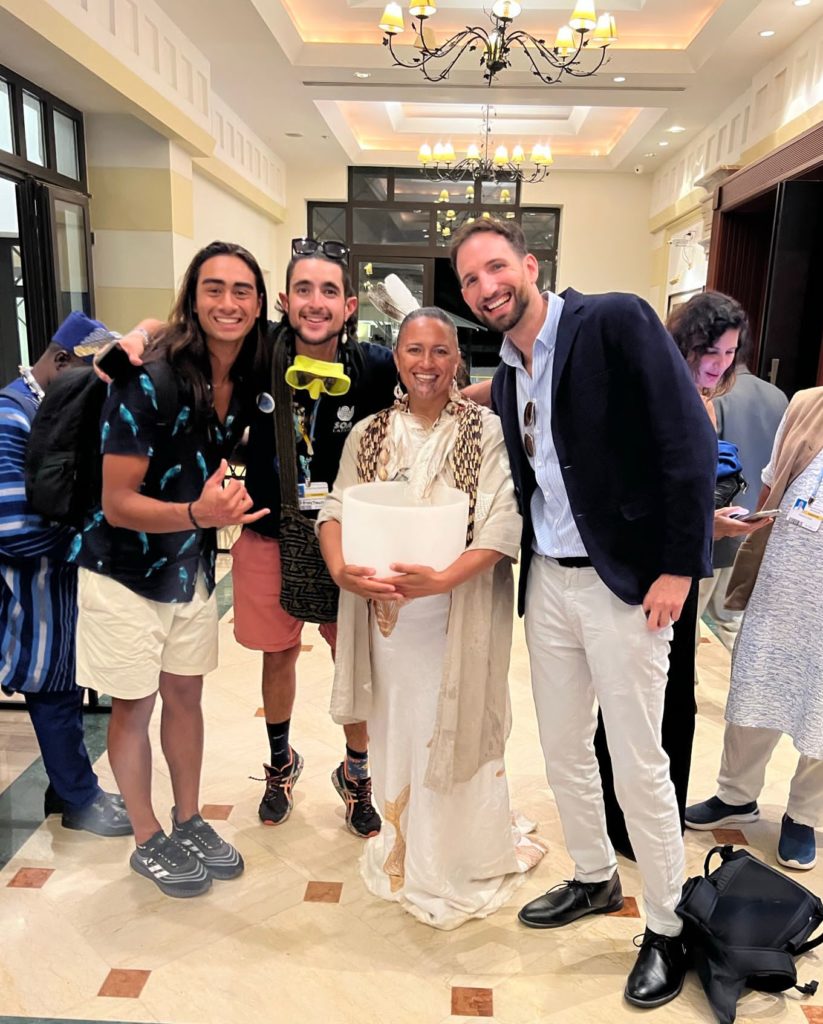
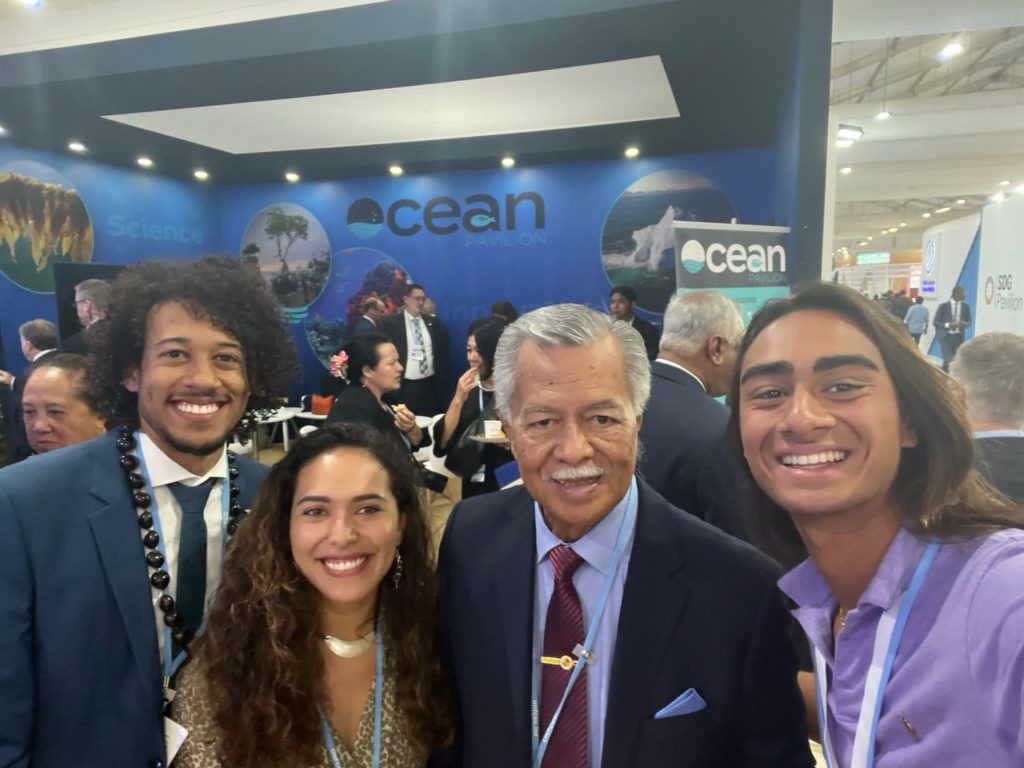
4. Tell us what’s next for you, what are you excited to create in 2023?
The top ocean solution opportunities on my radar are:
- IMPAC 5 in Vancouver BC, from February 3-9
- OOC Panama from March 2-3
- Volunteering with Tetiaroa Society to serve as an Island Guardian on a remote atoll in French Polynesia, learning from Indigenous stewardship practices
- Creating a short film expanding on One World Breath, the youth ocean-climate connection movement alongside Craig Foster (My Octopus Teacher) and Jane Goodall
- Improving UBC’s Climate Emergency Plan of action within the ocean and climate-focused departments and empowering students to be Ocean Guardians
- Creating jobs for young people to work with OnDeck Fisheries AI to improve fishing monitoring and revolutionize the fishing industry! We are openly hiring so please be in touch!
- Bringing young people into coastal adaptation projects like the IUCN Great Blue Wall Initiative, working with the Minderoo Foundation to finance material innovation and plastic alternatives, and supporting the XPrize on Coral Reef Restoration make huge waves!
- Hopefully, become a National Geographic young explorer and create storytelling projects alongside Nia Tero that capture the incredibly powerful inextricable connection between ocean health and human health.
- Launch the BC Oceans Hub! We are excited to announce that several ocean networks that aim to empower youth in Canada, Sustainable Ocean Alliance, ECOP Canada (the Canada node for the Global ECOP Programme, endorsed by the UN Ocean Decade), Ocean Uprise, and Ocean Wise are coming together to supercharge your local community to support ocean solutions!
- Engage now with the Conservationist Collective’s Ocean Health and Human Health Toolkit and the Find Your Place Learning Hub (for all the educational ocean-climate literacy materials you need.
- Learning and growing with Indigenous wisdom and hands-on applied restoration projects to improve blue carbon ecosystem health (#team kelp) and water-based communities.
- Intergenerational Collaboration for ocean-climate action. Cross-disciplinary knowledge sharing. Learning from Ocean Stewardship practices led by Indigenous people.
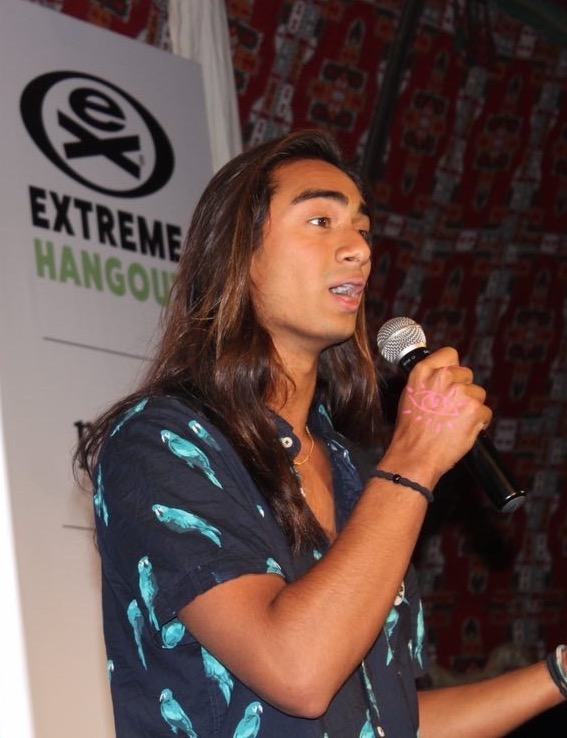
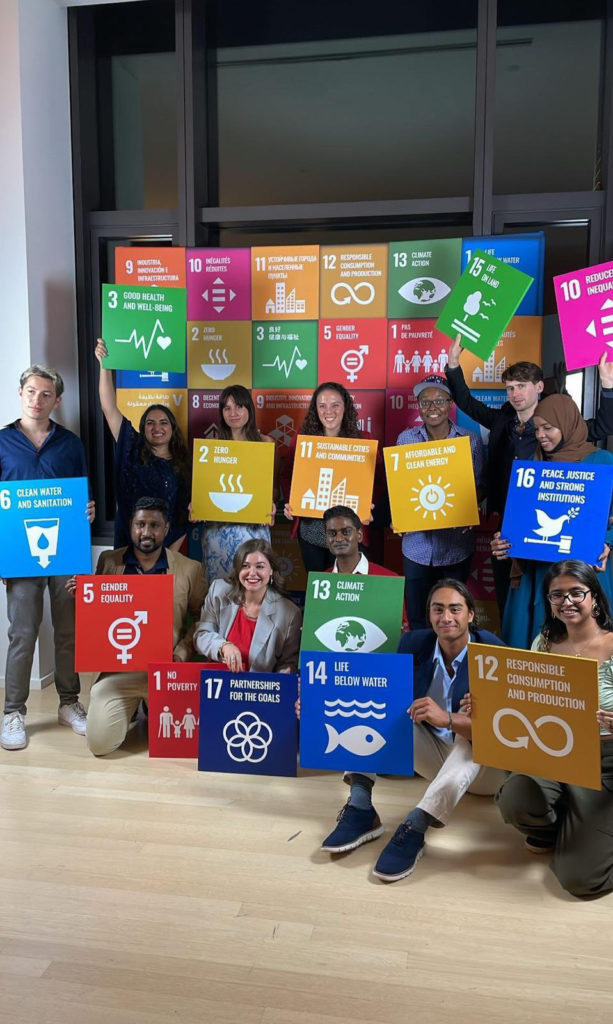
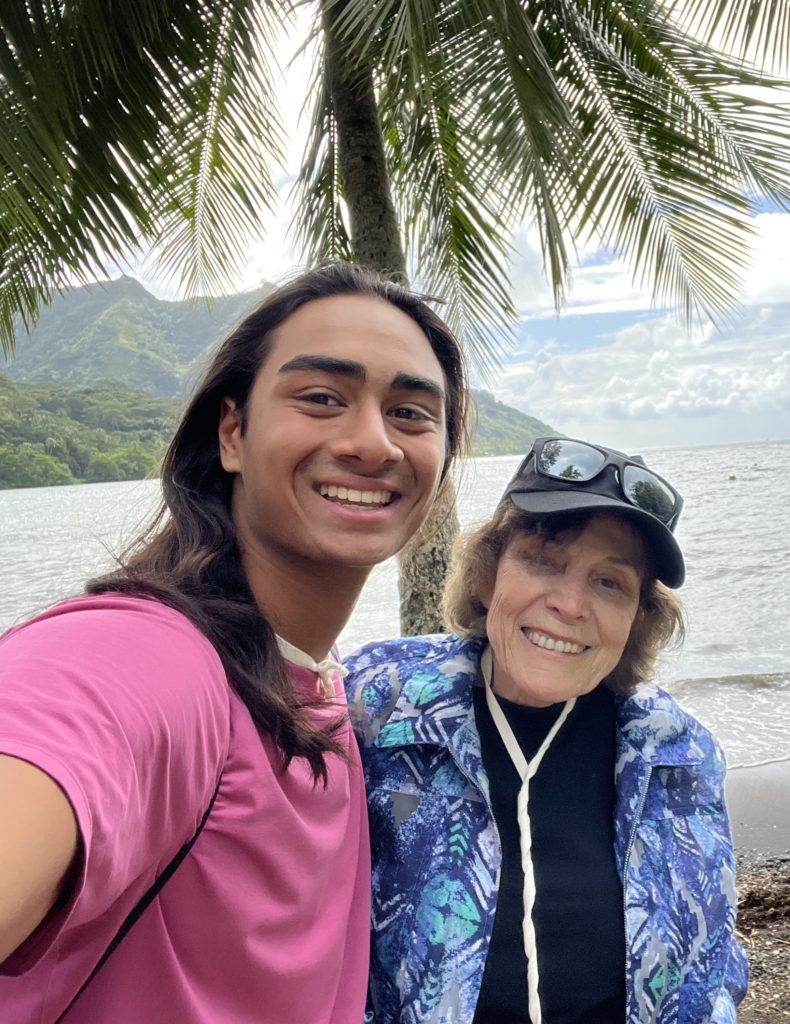
Thanks so much for your powerful and inspiring words, Bodhi, we look forward to seeing you make waves in 2023, and we encourage people to reach out to Bodhi via Ocean Uprise to get involved in this movement.
